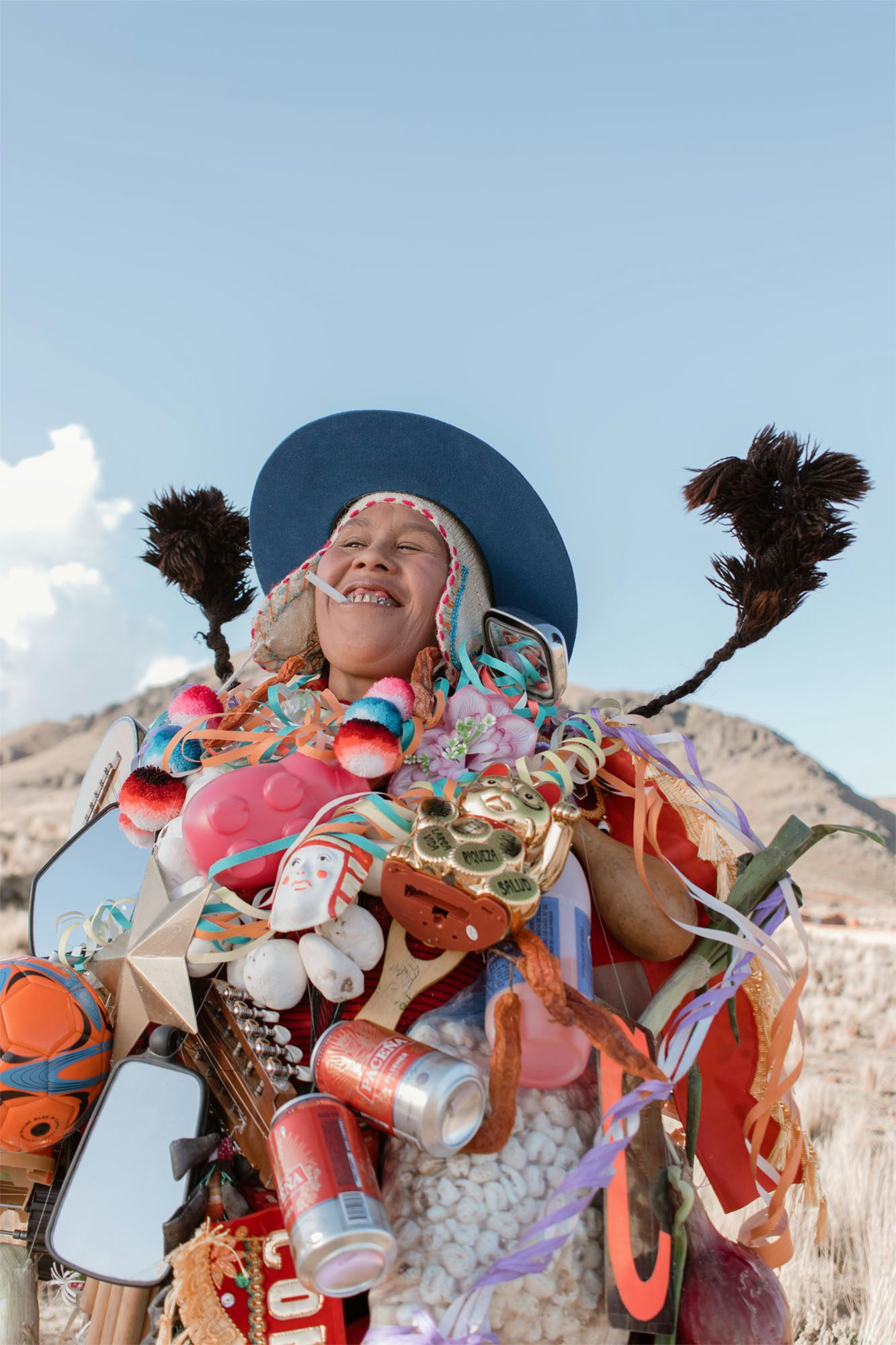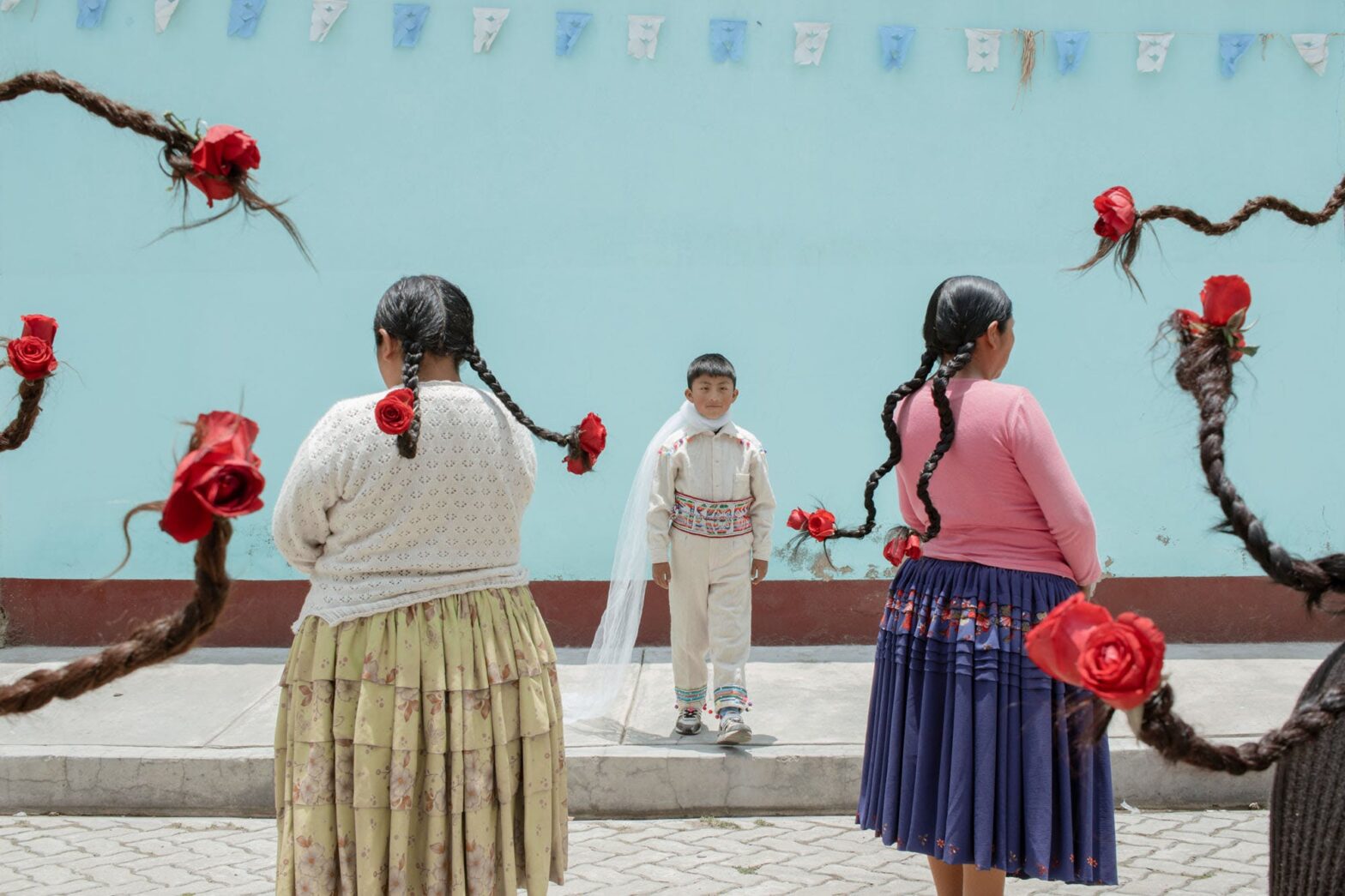[ad_1]
Bolivian photographer River Claure is intrigued by how collective identity is formed and the influence of external perspectives. To him, these questions are inseparable from photography, and the stronghold Europe and North America has had over how people and cultures have been documented. These images, particularly of the global south, have revolved around exoticism, inferiority, otherness, “and Bolivia was no exception. I think that being represented for so long in the same way strongly affects the conception of identity of a whole region,” he says.
With the aim of disrupting a binary view of cultural identity, Claure emphasises the patchwork of contrasts and experiences that shape people. He feels these can be summed up by a term in the Aymara language, ‘Ch’ixi’, which refers to a grey colour created by Aymara weavers braiding different coloured threads together. It’s this inbetween state that he’s most fascinated by.


His perspective shifted when he moved to Madrid for his Masters studies. “Living outside my country of origin inevitably made me think about my roots and reflect on the elements with which I identify, and the way in which the ‘margins’ are observed from Europe,” he says. “My time outside Bolivia also made me appreciate the relationship I have with the landscape, not only the natural but also the urban.”
In Madrid, he began to question where he belonged, a feeling that eventually gave rise to his project, Warawar Wawa. He says the series “proposes a visual alternative to the traditional ideas representing the Bolivian Andes”, resulting in images that are fantastical but not folkloric, while blending historic customs with nods to “ideas and realities of the present”, such as the Barcelona football shirt worn by the young protagonist featured.


The project is based on Antoine de Saint-Exupéry’s novella Le Petit Prince, which follows an aviator stranded in the desert and his encounter with a remarkable, thought-provoking child – the little prince – who lives on an asteroid. Claure’s interpretation translates to Son of the Stars, as he says there is no real concept of monarchy in Bolivian Andean culture. The reference to stars and cosmology in the title also allowed him to conjure a “fantastic or magical visual universe” while respecting the Aymaran emphasis on nature as a “superior entity”.
The series is filled with symbols that audiences will be able to dissect to varying degrees. Claure is particularly interested in Christian iconography, but rather than simply injecting these motifs into the project, he uses them as a point of tension. “There is an image in the project La Virgen Cerro that represents the Virgin Mary and at the same time represents the Pachamama (Mother Earth in the Aymara culture),” he says as an example.

Since creating Warawar, Claure’s focus has remained firmly planted on Bolivia, but in his new work, he’s examining the lasting impact of post-colonialism on mining communities in particular. Alongisde his carefully orchestrated photography, he’s keen to introduce photographs from his family archive to reflect his personal connection to the concept.
“My own family history is marked by this work, both of my grandfathers were miners at some point in their lives,” he says. “The history of mining is a fundamental part in the construction of the imaginary and identity that many Bolivians have.”



@riverclaure
[ad_2]
